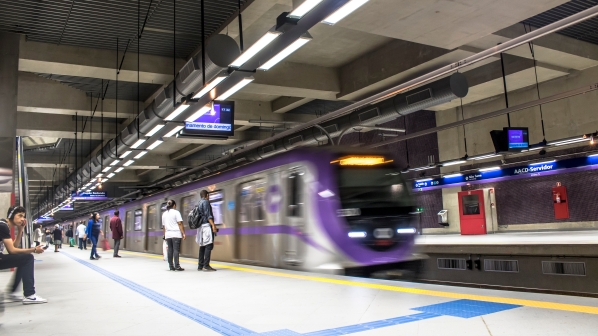The situation is beginning to improve slightly, with passenger numbers recovering by 27% in the third quarter compared with the second quarter, which recorded an 84% drop year-on-year. However, passenger numbers in the third quarter were still down by 54% year-on-year.
This recovery has been slowed by the fact that 70% of journey are usually taken for work, with high unemployment coupled with an increase in companies closing or working remotely affecting passenger numbers, says ANPTrilhos president, Mr Joubert Flores.
Between January and September, operators carried around 1.1 billion fewer passengers, a 47% decrease year-on-year.
ANPTrilhos says the impact on revenue is particularly worrying, with operators experiencing a Reais 6.1bn drop in revenue between March and September. This deficit is expected to grow to Reais 7.4bn by the end of December, representing 45% of annual ticket revenue.
In light of this, ANPTrilhos is calling for emergency support for the sector. The association is working with the government to develop a bill to provide aid to public transport companies including metro, urban train and bus operators. The legislation has been approved by the house, but is currently stuck in the senate.
The risk is that the “medicine will arrive after the patient has died,” Flores says.
Flores says the measure is not designed to help companies or rebalance contracts, but would simply provide the resources necessary to maintain services. He highlights that companies have taken on additional costs to stop of the spread of Covid-19 while cutting costs in other areas, which has allowed operation to continue, but adds this is not sustainable in the long term.

